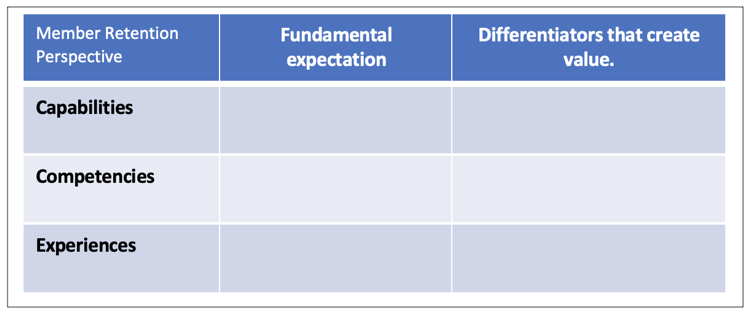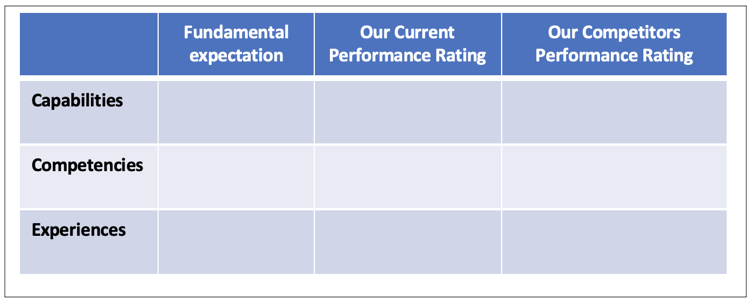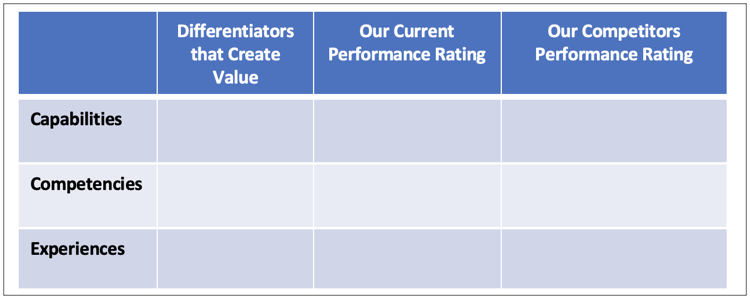What makes you so relevant you are impossible to forget?

Members, prospective members, and employees ask three questions every day: Why you? Why now? What makes you relevant?
They ask it when deciding to begin a relationship with you. They ask it when they are wondering if they should continue a relationship with you. Most important, they will ask it every day for as long as your credit union opens its doors.
Remaining relevant is your biggest challenge for long-term success.
When was the last time you answered those three questions from the perspective of your members, prospects, and/or employees: Why you? Why now? What makes you relevant?
Better yet, when was the last time that you asked them for their candid feedback?
What it takes to be relevant
Steve Martin always responds with the same answer when asked about what it takes to “make it” in show business: “Be so good they can’t ignore you.”
That is a great—and pithy—answer, and it also depends on your time perspective and definition of “making it.” There is one answer for achieving a goal once. There is a different answer if your definition of making it is a legacy of relevance defined by excellence year … after year … after year.
The key to relevance for your credit union is incredibly simple to describe and amazingly difficult to maintain. Excellence at the fundamentals is the minimum. Distinctive that adds value is the difference.
Creating a concise definition or relevance is like nailing Jell-O to the wall. It is possible for a while, but over time it starts to break down.
The challenge is that relevance is relative and subjective. Prospective and current members evaluate you by the best financial services experience at their disposal not against other credit unions. Likewise, employees and applicants compare working for you with every other employer that is a candidate for their qualifications and skills.
Three areas on which to focus
We begin to understand the requirements for achieving and maintaining relevance when we evaluate ourselves in three board areas:
- Capabilities: What we provide. For members that might be state-of-the-art mobile banking services. For employees it could be flexibility, benefits, or career advancement.
- Competencies: What are we able to do that meets or exceeds expectations. For instance, we might have the online banking capability, but that does not ensure competence in delivering it in a way that meets expectations or becomes a differentiator.
- Experiences: How we make others feel. Capabilities and competencies contribute to the experience, but the best organizations provide that something extra.
Here is a four-step exercise I use in strategic planning sessions to help clients determine what it takes to accomplish this. For this example, we will focus on member retention.
- Create a 3 X 3 table like the one shown below. Once created, determine the fundamental expectations and differentiators that create value from the target group (in this case current members).

- Perform an analysis of your current ability and the current ability of others to deliver the fundamental expectations for the target group using a table like this one. I use a 10-point scale, but you can use one that fits your needs.

- Perform the same analysis for the differentiators that create value.

- Develop a plan that meets your target audience’s expectations and separates you from your competitors.
Is it Time to Evaluate Your Relevance?
The obvious answer is Yes. We all need to examine our relevance on a regular basis.
That doesn’t mean that you should stop what you are doing and conduct this assessment now. You do, after all, have other priorities.
The better question is, “Should I evaluate my relevance now?”
That depends.
No one intends to become irrelevant. It is exceedingly rare that one event renders you obsolete. More often it is a slow death that is easy to miss unless you are watching. Here are a few of the symptoms to know if you need to conduct this exercise today:
- Inability to attract and keep members or top talent
- There are comments or complaints that you are isolated from current realities
- Your actions no longer matter to competitors (for members or talent).
- Flat or declining revenue when everyone else is growing.
- The only things that are new in your capabilities and competencies are the words you use to describe what you have been doing for years
Past success proves you were right … once. Remaining relevant is the biggest challenge we face in a world where everyone—members, prospects, and employees—has unlimited choices. The secret to a legacy of relevance is the ability to deliver on the fundamental AND the differentiators that create value.





